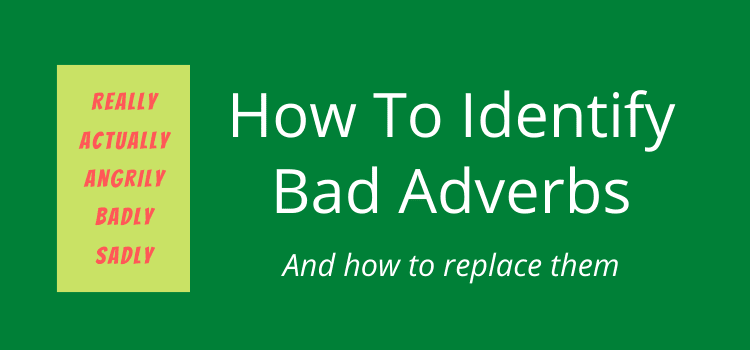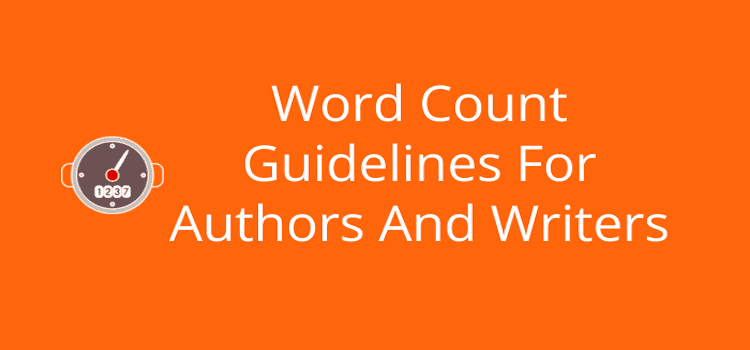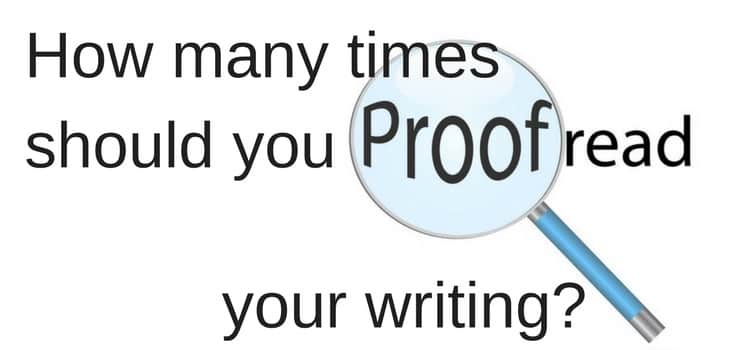
Yes, using too many weak, poor, or bad adverbs can be a sign of lazy writing.
But as a part of speech, adverbs have their place. You can’t write without them.
The problem arises when you use too many weak or poor adverbs that have better alternatives.
When you learn to identify these problem adverbs, you can delete or replace them without much effort.
What are really bad adverbs?
If there is one adverb you should almost always remove, it is really because it really is a poor choice in most cases.
It usually says very little.
If there is an even worse bad adverb, it must be actually, actually.
I really don’t like asparagus.
Actually, I really don’t like asparagus.
Just say what you mean.
I don’t like asparagus.
I’m not too fond of asparagus.
When you see an adverb in the first few words of a sentence, it’s often a good candidate for you to reconsider.
If you notice a sentence that starts with ideally, inadvertently, or honestly, you can usually delete the word.
Identifying overused and redundant adverbs
If there is a simple adverb rule, it is if you don’t need it, delete it.
It’s abundantly clear that some words should be replaced or removed.
It’s clear that some words should be replaced or removed.
When you notice an adverb, especially one ending in LY, consider if it is necessary.
Did you fully comply with all the rules?
Did you comply with all the rules?
If you comply with all the rules, fully is grammatically redundant in this question.
But if you see two, it’s a sure sign to delete or edit.
I wholeheartedly and totally agree with your views on good writing.
I agree with all your views on good writing.
It’s the same in this phrase. If you agree with all the views, it’s a complete agreement. So, the adverbs are unnecessary.
When an adverb repeats what is already clear in a sentence, it’s a great candidate for deletion.
What are good adverbs?
Time and frequency adverbs are often essential to the meaning of a sentence. It’s rare that you would or could delete them.
In most cases, these words are necessary and often impossible to replace or rewrite.
I’m a baker, so I have to get up early to go to work.
Sam rarely goes to the cinema because he thinks it’s too expensive.
Roy still drives his 1965 Volkswagon Beetle to work.
It’s okay. I’ll finish the report later.
You can also use highly descriptive adverbs to strengthen your writing.
With these, you can often describe something better and more concisely.
It was surprisingly easy to set up my new computer.
I don’t know why, but George found it incredibly difficult to learn how to drive.
The dining room for the wedding reception was beautifully decorated with spring flowers.
Yes, you could rewrite the three sentences above without the adverbs.
I was surprised at how easy it was to set up my new computer.
But very often, a sentence becomes longer and is not as clear.
Using descriptive adverbs or modifiers is usually fine as long as you are selective.
Watch out for weeds in your garden

Stephen King referred to dandelions and weeds when talking about adverbs.
His advice was regarding their use in dialogue tags.
I insist that you use the adverb in dialogue attribution only in the rarest and most special of occasions … and not even then, if you can avoid it.
You should avoid using dialogue tags like these because they tell and don’t show.
He shouted angrily.
She whispered quietly.
He sneered menacingly.
She moaned pitifully.
In most cases, you can delete the adverb. However, if you want to retain the sentiment or action, rewrite it with more description.
In a fit of rage, he shouted, “get out of my life right now!”
When it comes to bad or poor adverbs, those in dialogue tags are probably the worst offenders.
Keep in mind Stephen King’s advice.
The best form of dialogue attribution is said, as in he said, she said, Bill said, Monica said.
When adjectives can be adverbs
There is a small group of LY words that can be both adverbs and adjectives.
When you use the adjective, it’s always okay. But be aware of possible redundancy if you use one as an adverb.
I am an only child. (Adjective)
I only have one brother. (Adverb)
She said she’s been feeling poorly. (Adjective)
The book was poorly written. (Adverb)
Both forms are generally fine to use, along with others, like weekly, monthly, or yearly.
Summary
Nouns, verbs, adjectives, and adverbs are one of the four main parts of speech in writing.
They are essential, so you need to use them all.
In themselves, there are no bad ones. But you always need to be selective and choose adverbs that enhance and strengthen your writing.
However, watch out for unnecessary redundancy, and take extra care with your dialogue tags.
These two uses of bad adverbs can really weaken your writing.
Related reading: Positive Writing Is Always Better Than The Negative



